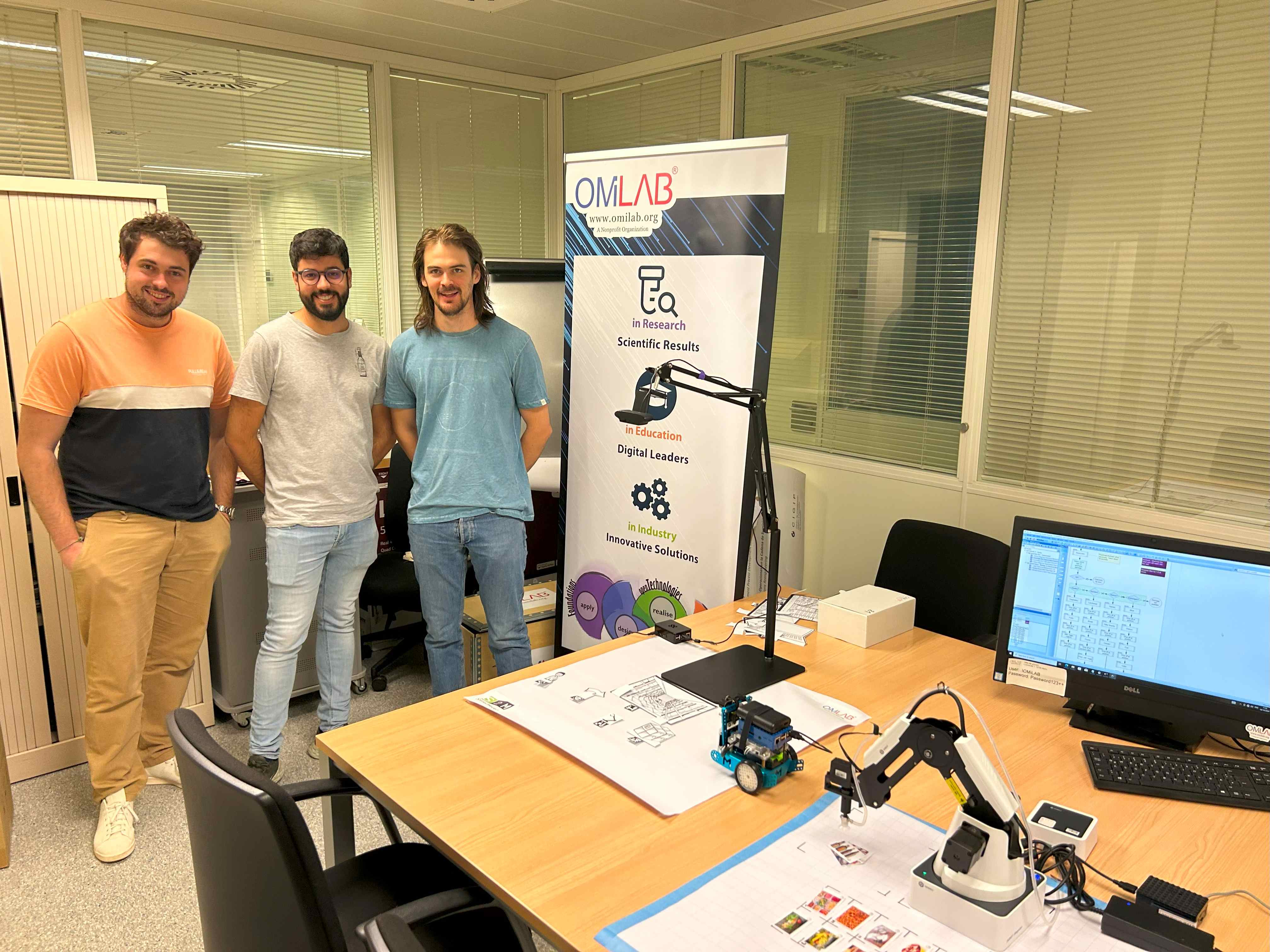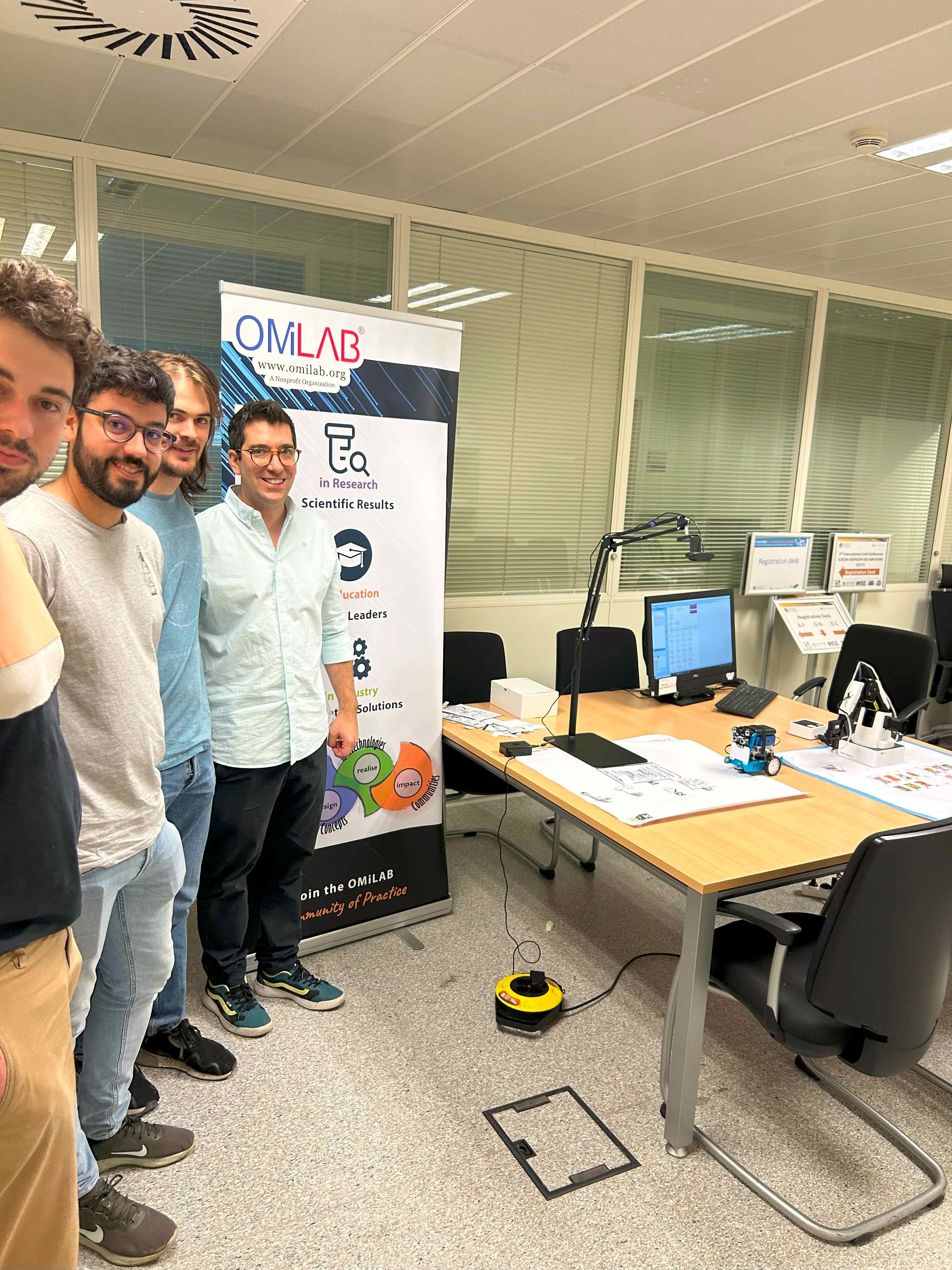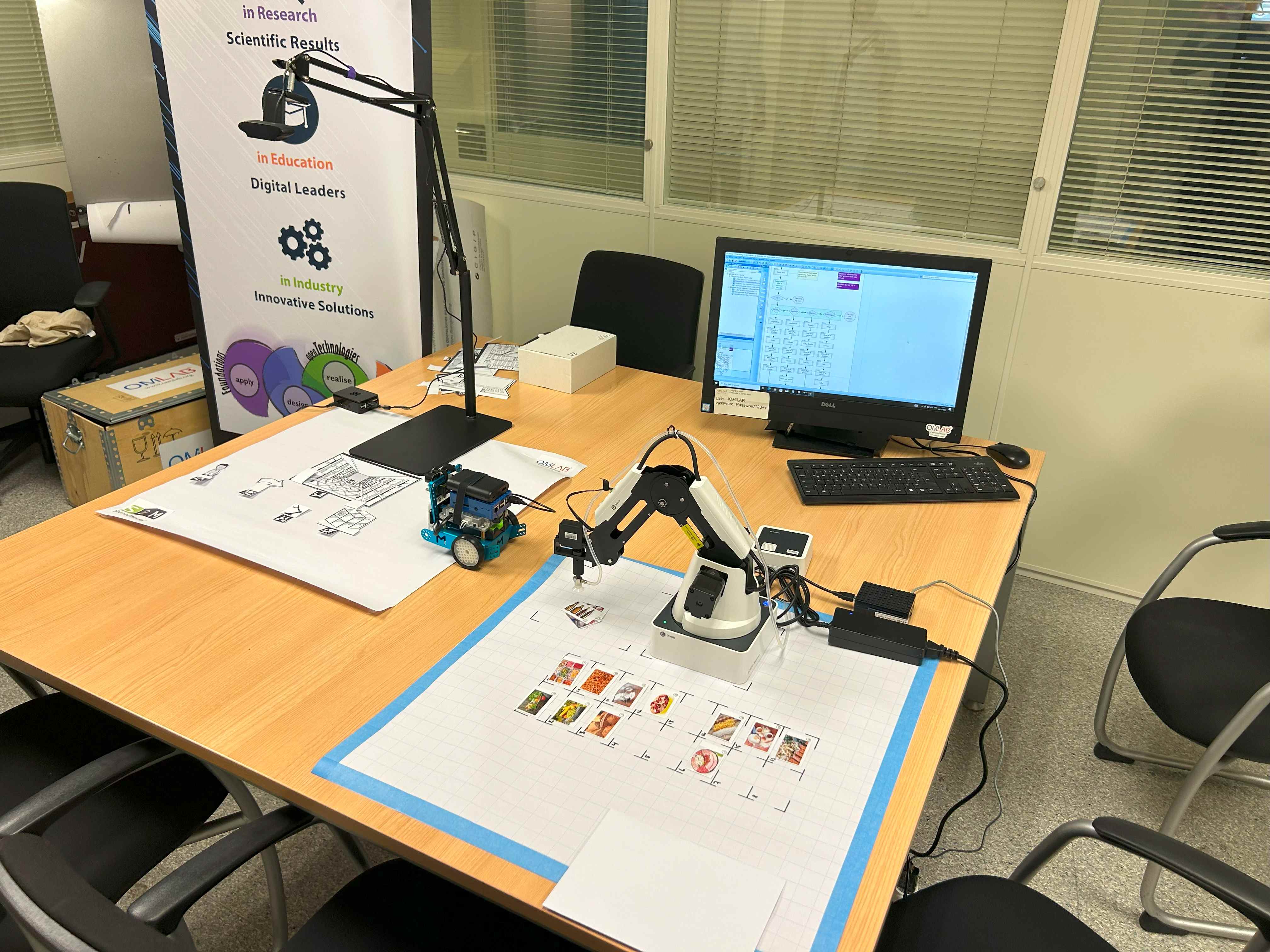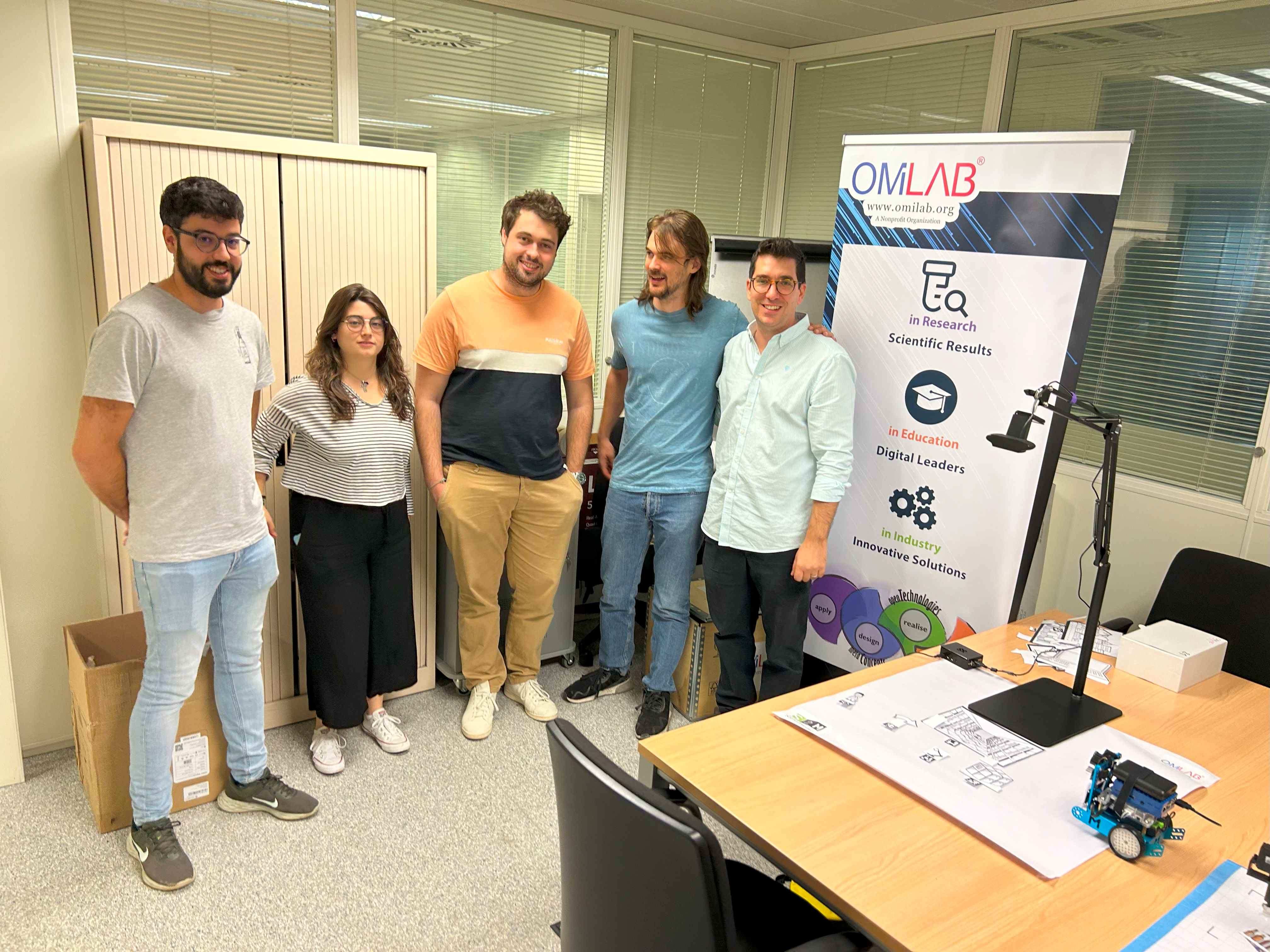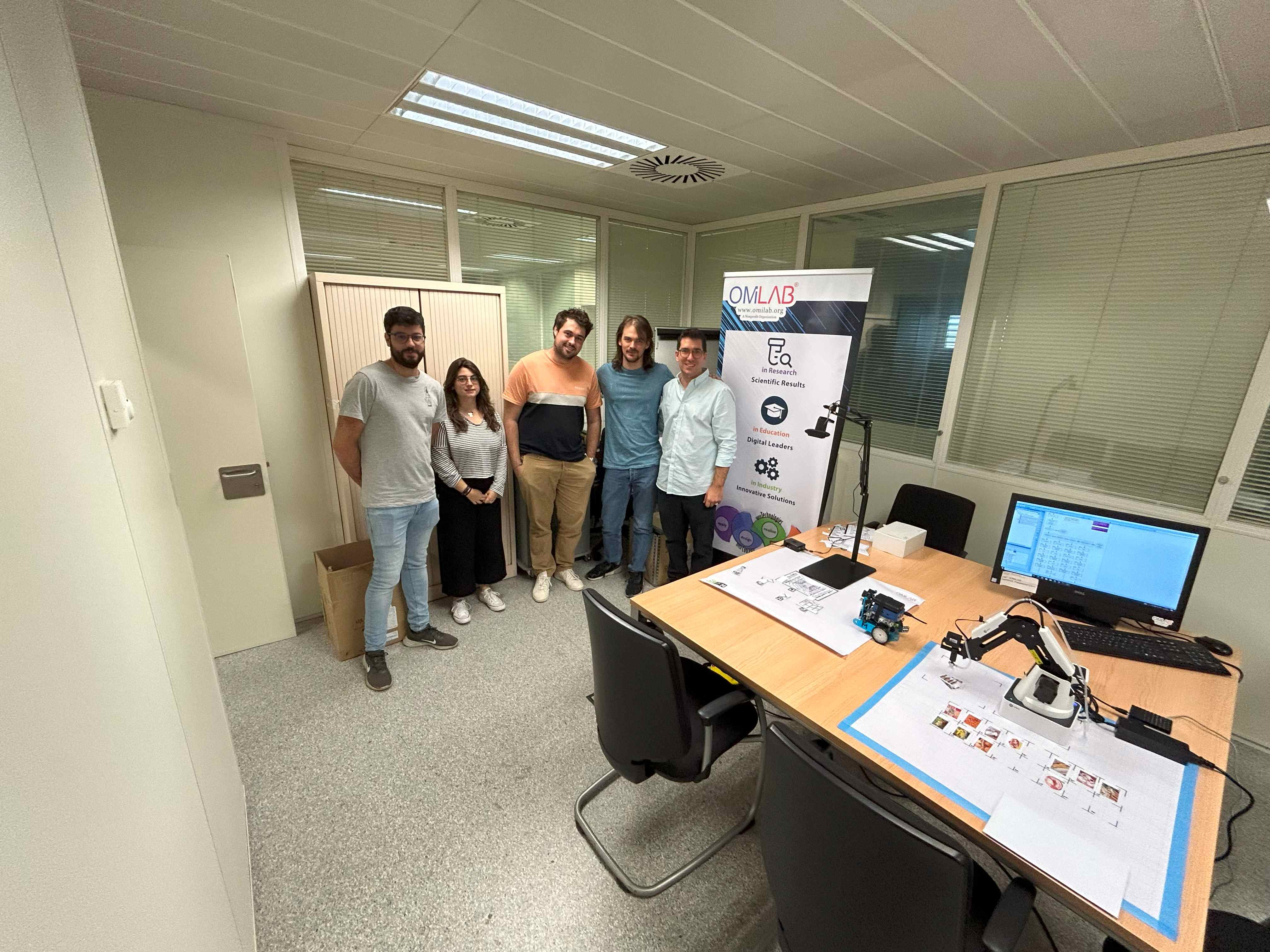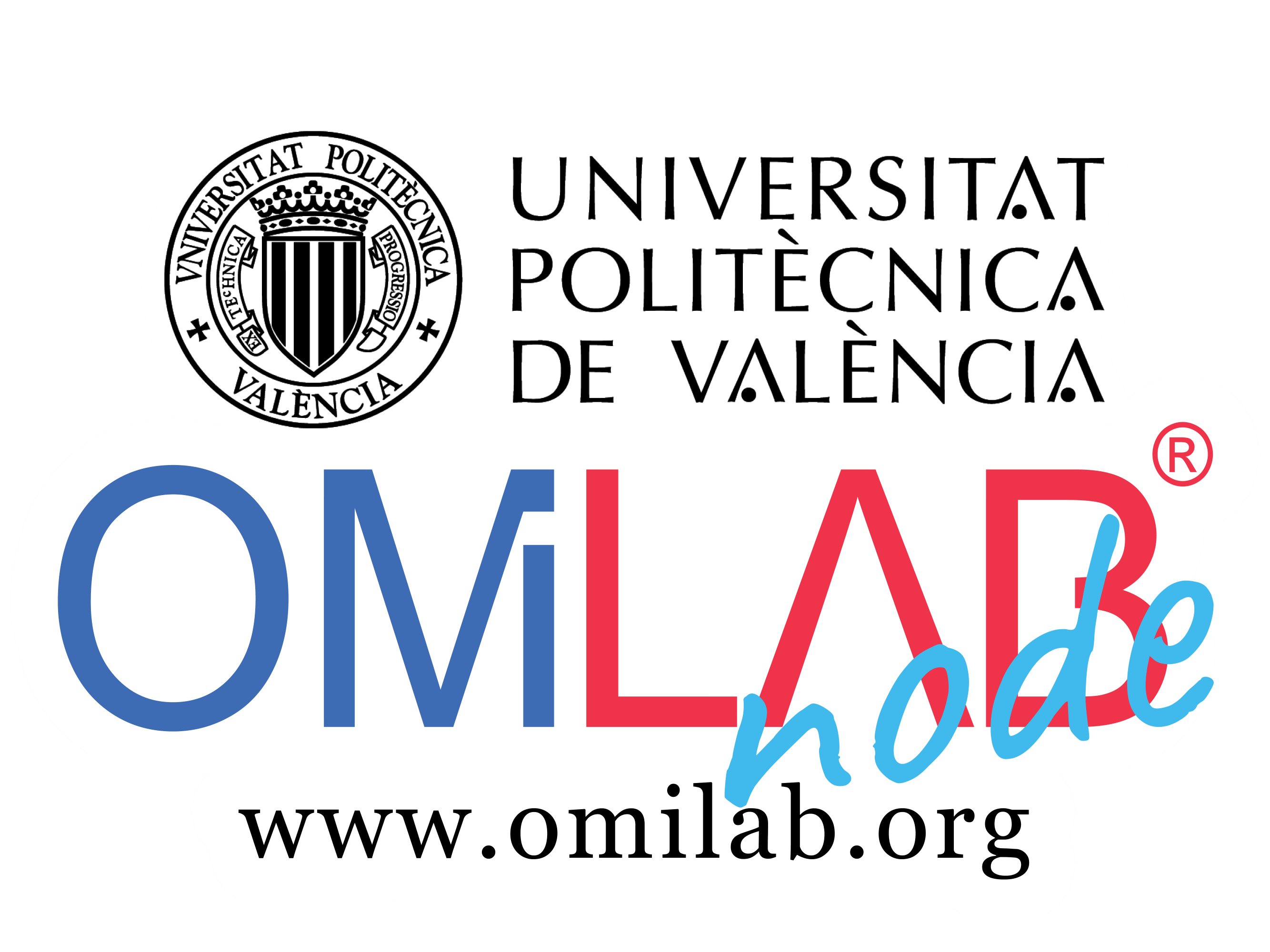
OMILAB@Universitat Politècnica de València
"Integrating Decision-Support Systems and AI into Production Processes"
OMiLAB@UPV is part of the Value Co-Creation Laboratories network of the EU-funded project CoDEMO 5.0.
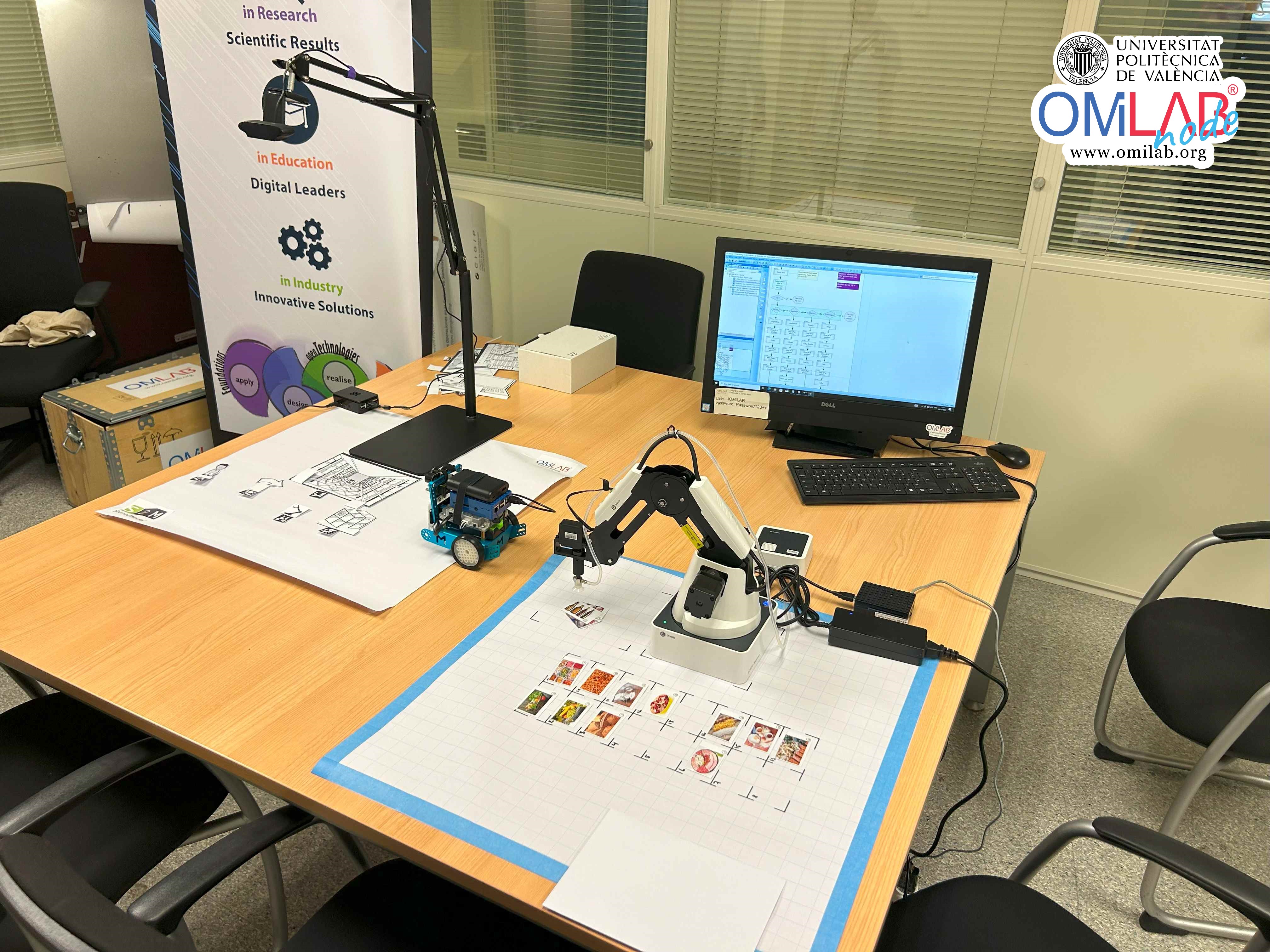
About the OMILAB Node
The Digital Innovation Environment powered by OMiLAB is integrated in the educational, research and development offering of CIGIP. It aims to develop resources and materials, especially related to vocational training, and innovation projects in the area of 5.0 transition.
The origins of CIGIP (Centro de Investigación en Gestión e Ingeniería de Producción) date back to 1990 with the R&D&I group in Production Management and Engineering (GIP) of the Department of Business Organization. Since then, CIGIP has developed more than 120 R&D&I projects and 150 contracts with companies. It has created a spinoff (Exos Solutions) and maintains a network of more than 300 partners. We develop our activity in R&D&I projects, technology transfer to companies and advanced postgraduate training in the area of Organizational Engineering and Logistics. A multidisciplinary team formed by professors attached to the Departments of Business Organization and Applied Statistics and Operations Research and Quality of the Universitat Politècnica de València, research staff and PhD students.
Over the past decade, the CIGIP at UPV has focused on advancing research in production and operations management. Their work has centered on optimizing supply chain management, logistics, and manufacturing systems through data-driven methodologies, digitalization, and Industry 4.0 technologies. CIGIP has played a key role in integrating decision-support systems and artificial intelligence into production processes to enhance efficiency, sustainability, and competitiveness. They have also contributed to the development of collaborative networks and smart manufacturing environments. By combining applied research with industrial collaboration, CIGIP has supported both academic progress and real-world innovation. Their multidisciplinary approach includes lean management, simulation, scheduling, and enterprise integration, positioning the center as a national and international reference in production engineering. Continuous innovation and technology transfer remain at the core of CIGIPs strategic agenda.
The origins of CIGIP (Centro de Investigación en Gestión e Ingeniería de Producción) date back to 1990 with the R&D&I group in Production Management and Engineering (GIP) of the Department of Business Organization. Since then, CIGIP has developed more than 120 R&D&I projects and 150 contracts with companies. It has created a spinoff (Exos Solutions) and maintains a network of more than 300 partners. We develop our activity in R&D&I projects, technology transfer to companies and advanced postgraduate training in the area of Organizational Engineering and Logistics. A multidisciplinary team formed by professors attached to the Departments of Business Organization and Applied Statistics and Operations Research and Quality of the Universitat Politècnica de València, research staff and PhD students.
Over the past decade, the CIGIP at UPV has focused on advancing research in production and operations management. Their work has centered on optimizing supply chain management, logistics, and manufacturing systems through data-driven methodologies, digitalization, and Industry 4.0 technologies. CIGIP has played a key role in integrating decision-support systems and artificial intelligence into production processes to enhance efficiency, sustainability, and competitiveness. They have also contributed to the development of collaborative networks and smart manufacturing environments. By combining applied research with industrial collaboration, CIGIP has supported both academic progress and real-world innovation. Their multidisciplinary approach includes lean management, simulation, scheduling, and enterprise integration, positioning the center as a national and international reference in production engineering. Continuous innovation and technology transfer remain at the core of CIGIPs strategic agenda.
Competences
- Engineering and performance management systems.
- Supply chain strategy and engineering.
- Supply chain strategy and engineering.
- Workstation engineering and distributed environments
About the Hosting Organisation
The Universitat Politècnica de València (UPV) is a public institution dedicated to research and education in science, technology, and the arts. Established in 1968 as the Higher Polytechnic Institute of Valencia, it attained university status in 1971. UPV operates across three campuses, Valencia, Gandia, and Alcoy, and comprises 13 schools and faculties offering a wide range of undergraduate, master, and doctoral programs.
The university serves approximately 28000 students, supported by 2500 teaching and research staff, and 1500 administrative professionals. UPV is recognized for its commitment to innovation and maintains strong international collaborations. In the QS World University Rankings 2025, it is positioned at 436 globally and within the top 100 for certain subjects. This dedication underscores UPVs role as a leading institution in higher education and research.
The university serves approximately 28000 students, supported by 2500 teaching and research staff, and 1500 administrative professionals. UPV is recognized for its commitment to innovation and maintains strong international collaborations. In the QS World University Rankings 2025, it is positioned at 436 globally and within the top 100 for certain subjects. This dedication underscores UPVs role as a leading institution in higher education and research.
Results
Get an overview what this OMiLAB has accomplised! Selected results are presented below as a contribution to the global community:
All further results of the OMiLAB Node are via the organizer.
Activities
The following, selected activities are organized by the OMiLAB.
Education Innovation Base on OMiLab Digital Ecosystem for Open Platform for Modeling the Factory of the Future
One of the main challenges that a university degree must address in the following years is the creation, design and engineering of digital capabilities to integrate robots into cyber-physical systems to create smart production environments. Experimentation environments in laboratory practices can be employed to bridge the gap between engineering students and machine or robot usage. This paper presents the implementation use case based on Omnilab technologies to engage the students in the human-machine interaction required for digitalization industrial processes. The proposed teaching experience on which this article is developed involves students in the Industrial Organization Engineering or Industrial Engineering domain to employ the Conceptual Modeling method to improve human and machine interactions in the digital era for the Factory of the Future. Open Models Laboratory presents a digital ecosystem that will be employed to create a conceptual model for the automatization of an industrial logistic operation. By applying this learning strategy, students work in a cooperative environment where the knowledge and digital skills can be more easily faced and absorbed, keeping their learning processes at a high level.
Special Session at CIO2025 - Education in Industrial Engineering
CIO2025 offers a great opportunity to share advances in Industrial Engineering. The conference is built on the solid previous experience of the annual ICIEIM/CIO conferences, providing a valuable forum to disseminate, to all branches of academia and industry.
PRO-VE Conference Series
The 25 years of scientific background developed by PRO-VE in designing and managing collaborative networks stand as the basis to build hybrid collaborative intelligence. The multisciplinarity of the science of collaborative networks make possible addressing a range of organizational and technical challenges, each of which demands careful thought and innovative solutions. On the technical side, ensuring effective human-AI integration, scaling AI systems, and fostering trust are key hurdles. Organizationally, addressing the need for skills development, managing change, and creating governance frameworks are all critical components. Balancing these challenges while maintaining ethical standards is essential for long-term success. PRO-VE 2025 is a forum for sharing and discussing current developments and experiences regarding the role of collaborative networks in the age of synergic intelligence between human and AI. Contributions are invited from multiple and diverse disciplines such as Engineering, Managerial and Socio-Human sciences - industrial engineering, computer science, manufacturing, organization science, logistics, management, and social sciences, among others.
CoDEMO 5.0 EU-funded Erasmus+ Project
CoDEMO projects fits perfectly with the strategic goals of the UPV and CIGIP. We are an education and research institution focus on transferring our development to the society and enterprises. CoDEMO will be an excellent project to develop and apply all our experience in education and transfer activities and to include in educational and VET tracks. UPV is leading the workpackage (WP5) about vocational certification deployment.
Innovation Sibiu Days 2024 - Using AI for developing personalized learning paths
PANEL 3. Artificial Intelligence - fairness, ethics and human-AI collaboration, by Ramona-Diana Leon, UPV.
Innovation Sibiu Days 2024 - Corporate Amnesia and Reskilling in the Industry 5.0 Context
PANEL 6. Education transformation - upskilling, reskilling, Lifelong Learning, by Ramona-Diana Leon, UPV.
Resources
The following cyber-physical resources are available at the OMILAB node:
Design Thinking Environment
Scene2Model Tool
Conceptual Modelling Layer
Bee-Up Tool
Cyber-physical Environment
Dobot Magician and mBot
Publications
Relevant publications of the OMILAB node:

